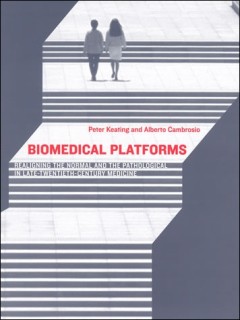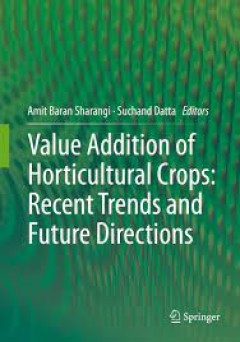Filter by

The techno-human condition
A provocative analysis of what it means to be human in an era of incomprehensible technological complexity and change.OCLC-licensed vendor bibliographic record.
- Edition
- -
- ISBN/ISSN
- 9780262295666
- Collation
- 1 online resource (xi, 222 pages) :illustrations
- Series Title
- -
- Call Number
- -

Fables and futures :biotechnology, disability, and the stories we tell ourselves
How new biomedical technologies--from prenatal testing to gene-editing techniques--require us to imagine who counts as human and what it means to belong. From next-generation prenatal tests, to virtual children, to the genome-editing tool CRISPR-Cas9, new biotechnologies grant us unprecedented power to predict and shape future people.OCLC-licensed vendor bibliographic record.
- Edition
- -
- ISBN/ISSN
- 9780262351799
- Collation
- 1 online resource (240 pages).
- Series Title
- -
- Call Number
- -

Innovation, dual use, and security :managing the risks of emerging biological…
Recent advances in disciplines such as biotechnology, nanotechnology, and neuropharmacology entail a "dual-use dilemma" because they promise benefits for human health and welfare yet pose the risk of misuse for hostile purposes. The emerging field of synthetic genomics, for example, can produce custom DNA molecules for life-saving drugs but also makes possible the creation of deadly viral agent…
- Edition
- -
- ISBN/ISSN
- 9780262301640
- Collation
- 1 online resource (x, 356 pages) :illustrations
- Series Title
- -
- Call Number
- -

Biomedical platforms :realigning the normal and the pathological in late-twen…
Since the end of World War II, biology and medicine have merged in remarkably productive ways. In this book Peter Keating and Alberto Cambrosio analyze the transformation of medicine into biomedicine and its consequences, ranging from the recasting of hospital architecture to the redefinition of the human body, disease, and therapeutic practices. To describe this new alignment between the norma…
- Edition
- -
- ISBN/ISSN
- 9780262276870
- Collation
- 1 online resource (xiv, 544 pages) :illustrations.
- Series Title
- -
- Call Number
- -

Truly human enhancement : a philosophical defense of limits
The transformative potential of genetic and cybernetic technologies to enhance human capabilities is most often either rejected on moral and prudential grounds or hailed as the future salvation of humanity. In this book, Nicholas Agar offers a more nuanced view, making a case for moderate human enhancement -- improvements to attributes and abilities that do not significantly exceed what is curr…
- Edition
- -
- ISBN/ISSN
- 9780262318976
- Collation
- 1 online resource (233 pages) :illustrations.
- Series Title
- -
- Call Number
- -

Research misconduct policy in biomedicine : beyond the bad-apple approach
Federal regulations that govern research misconduct in biomedicine have not been able to prevent an ongoing series of high-profile cases of fabricating, falsifying, or plagiarizing scientific research. In this book, Barbara Redman looks critically at current research misconduct policy and proposes a new approach that emphasizes institutional context and improved oversight.OCLC-licensed vendor b…
- Edition
- -
- ISBN/ISSN
- 9781461944669
- Collation
- 1 online resource (xx, 184 pages).
- Series Title
- -
- Call Number
- -

Where futures converge :Kendall Square and the making of a global innovation …
"This book tells the history of Kendall Square, Cambridge, MA, and how it came to be one of the world's premiere innovation districts"--OCLC-licensed vendor bibliographic record.
- Edition
- -
- ISBN/ISSN
- 0262368498
- Collation
- 1 online resource.
- Series Title
- -
- Call Number
- -

Tactical biopolitics :art, activism, and technoscience
'Tactical Biopolitics' suggests that the political challenges at the intersection of life, science and art are best addressed through a combination of artistic intervention, critical theorising and reflective practices. The multidisciplinary contributions focus on the political significance of recent advances in biological science.OCLC-licensed vendor bibliographic record.
- Edition
- -
- ISBN/ISSN
- 9780262271127
- Collation
- 1 online resource (xxii, 511 pages) :illustrations.
- Series Title
- -
- Call Number
- -

Value Addition of Horticultural Crops: Recent Trends and Future Directions
This book combines several ideas and philosophies and provides a detailed discussion on the value addition of fruits, vegetables, spices, plantation crops, floricultural crops and in forestry. Separate chapters address the packaging, preservation, drying, dehydration, total quality management and supply chain management of horticultural crops. The book explains value addition as a process of in…
- Edition
- -
- ISBN/ISSN
- 978-81-322-2262-0
- Collation
- -
- Series Title
- -
- Call Number
- -

New Bioprocessing Strategies: Development and Manufacturing of Recombinant An…
This book review series presents current trends in modern biotechnology. The aim is to cover all aspects of this interdisciplinary technology where knowledge, methods and expertise are required from chemistry, biochemistry, microbiology, genetics, chemical engineering and computer science. Volumes are organized topically and provide a comprehensive discussion of developments in the respectiv…
- Edition
- 1
- ISBN/ISSN
- 978-3-319-97110-0
- Collation
- Gizi
- Series Title
- Advances in Biochemical Engineering/Biotechnology
- Call Number
- 6113.2
 Computer Science, Information & General Works
Computer Science, Information & General Works  Philosophy & Psychology
Philosophy & Psychology  Religion
Religion  Social Sciences
Social Sciences  Language
Language  Pure Science
Pure Science  Applied Sciences
Applied Sciences  Art & Recreation
Art & Recreation  Literature
Literature  History & Geography
History & Geography